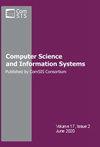Personalization exercise recommendation framework based on knowledge concept graph
IF 1.2
4区 计算机科学
Q4 COMPUTER SCIENCE, INFORMATION SYSTEMS
引用次数: 0
Abstract
With the explosive increase of online learning resources, how to provide students with personalized learning resources and achieve the goal of precise teaching has become a research hotspot in the field of computer-assisted teaching. In personalized learning resource recommendation, exercise recommendation is the most commonly used and most representative research direction, which has attracted the attention of a large number of scholars. Aiming at this, a personalized exercise recommendation framework is proposed in this paper. First, it automatically constructs the relationship matrix between questions and concepts based on students' answering records (abbreviated as Q-matrix). Then based on the Q-matrix and answer records, deep knowledge tracing is used to automatically build the course knowledge graph. Then, based on each student's answer records, Q-matrix and the course knowledge graph, a recommendation algorithm is designed to obtain the knowledge structure diagram of every student. Combined the knowledge structure diagram and constructivist learning theory, get candidate recommended exercises from the exercise bank. Finally, based on their diversity, difficulty, novelty and other characteristics, exercises are filtered and obtain the exercises recommended to students. In the experimental part, the proposed framework is compared with other algorithms on the real data set. The experimental results of the proposed algorithm are close to the current mainstream algorithms without the Q-matrix and curriculum knowledge graph, and the experimental results of some indicators are better than Algorithms exist.基于知识概念图的个性化习题推荐框架
随着网络学习资源的爆炸式增长,如何为学生提供个性化的学习资源,实现精准教学的目标,成为计算机辅助教学领域的研究热点。在个性化学习资源推荐中,运动推荐是最常用、最具代表性的研究方向,引起了大量学者的关注。针对此,本文提出了一种个性化的运动推荐框架。首先,根据学生的答题记录,自动构建问题与概念之间的关系矩阵(简称q矩阵)。然后基于q矩阵和答题记录,采用深度知识跟踪技术自动构建课程知识图谱。然后,根据每个学生的答题记录、q矩阵和课程知识图,设计推荐算法,得到每个学生的知识结构图。结合知识结构图和建构主义学习理论,从练习库中获得考生推荐练习。最后,根据习题的多样性、难度、新颖性等特点,对习题进行筛选,得到推荐给学生的习题。在实验部分,将该框架与其他算法在真实数据集上进行了比较。本文算法的实验结果接近目前主流算法,没有q矩阵和课程知识图,部分指标的实验结果优于现有算法。
本文章由计算机程序翻译,如有差异,请以英文原文为准。
求助全文
约1分钟内获得全文
求助全文
来源期刊

Computer Science and Information Systems
COMPUTER SCIENCE, INFORMATION SYSTEMS-COMPUTER SCIENCE, SOFTWARE ENGINEERING
CiteScore
2.30
自引率
21.40%
发文量
76
审稿时长
7.5 months
期刊介绍:
About the journal
Home page
Contact information
Aims and scope
Indexing information
Editorial policies
ComSIS consortium
Journal boards
Managing board
For authors
Information for contributors
Paper submission
Article submission through OJS
Copyright transfer form
Download section
For readers
Forthcoming articles
Current issue
Archive
Subscription
For reviewers
View and review submissions
News
Journal''s Facebook page
Call for special issue
New issue notification
Aims and scope
Computer Science and Information Systems (ComSIS) is an international refereed journal, published in Serbia. The objective of ComSIS is to communicate important research and development results in the areas of computer science, software engineering, and information systems.
 求助内容:
求助内容: 应助结果提醒方式:
应助结果提醒方式:


